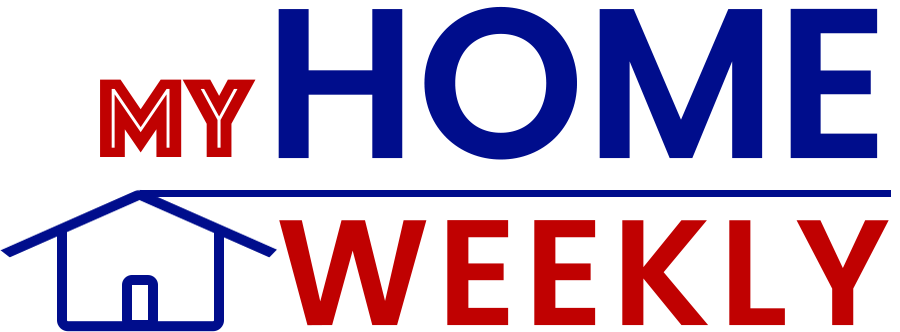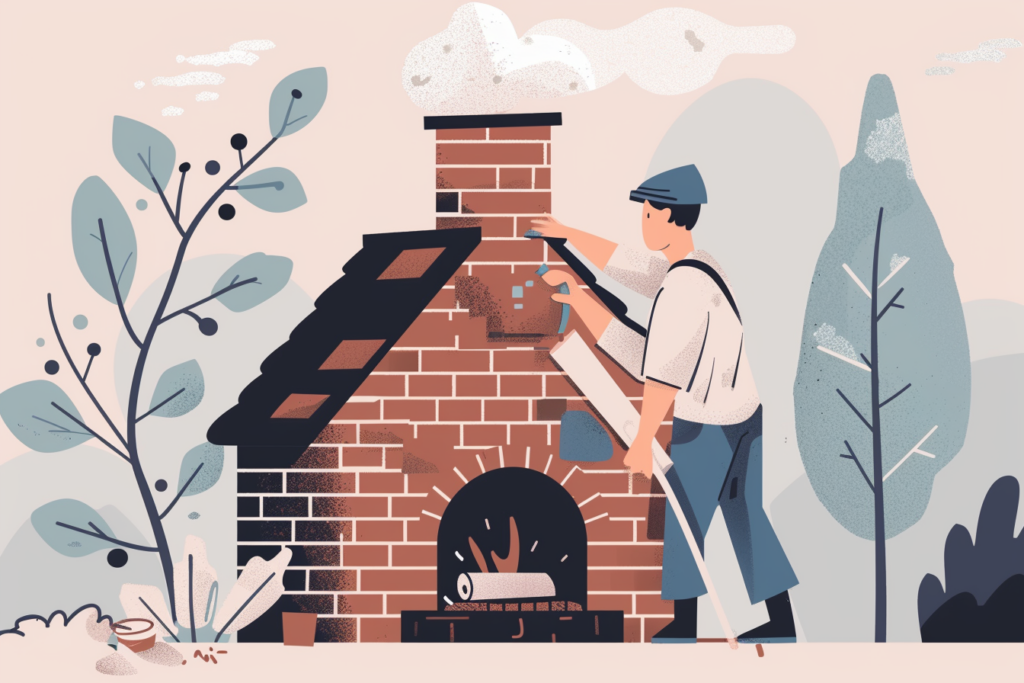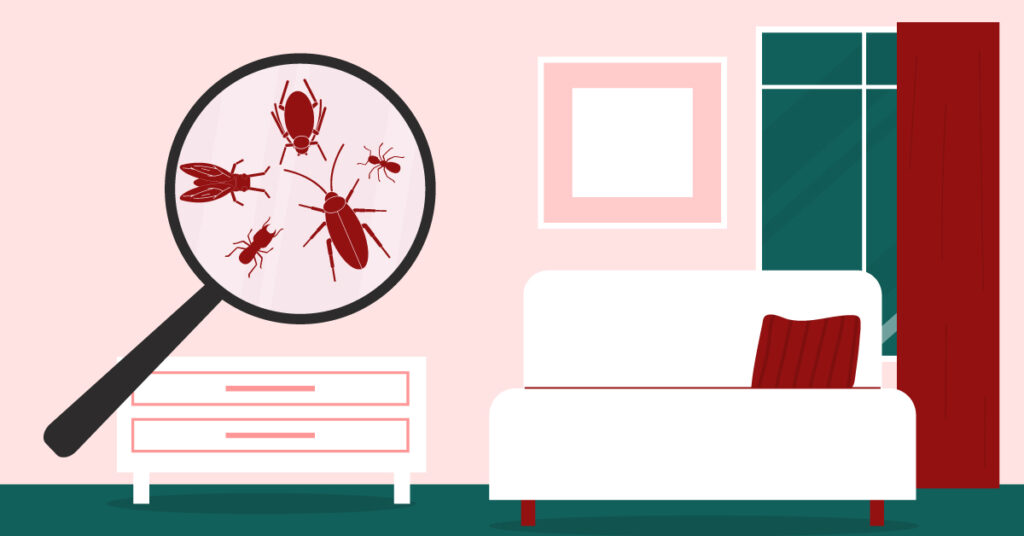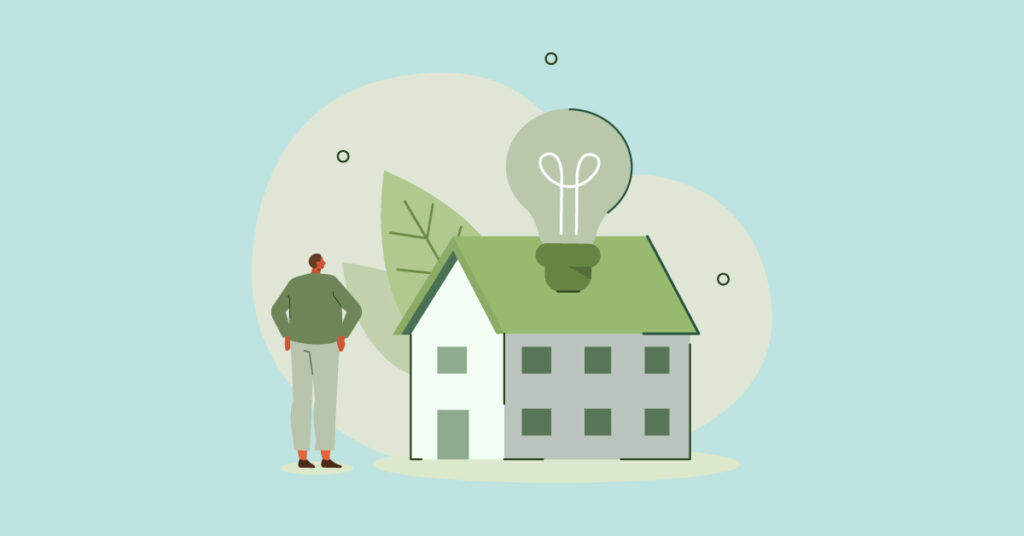Chimney cleaning is essential for homeowners, yet it often falls by the wayside until a problem arises. Regular maintenance of your chimney can prevent hazardous situations, such as chimney fires, and ensure the efficient operation of your fireplace. This post covers all you need to know about chimney cleaning, from the why to the how and even the when.
The Importance of Chimney Cleaning
The primary reason to keep your chimney clean is safety. Every time you use your fireplace, combustion creates a byproduct called creosote that builds up along the interior walls of your chimney.
The creosote, if it accumulates, is highly flammable and can ignite, causing a chimney fire. Regular cleaning removes creosote, reducing the risk of fire. Moreover, a clean chimney ensures proper venting of smoke and carbon monoxide, from your home.
Related: 12 Fire Safety Tips For Your Home
Recognizing the Signs
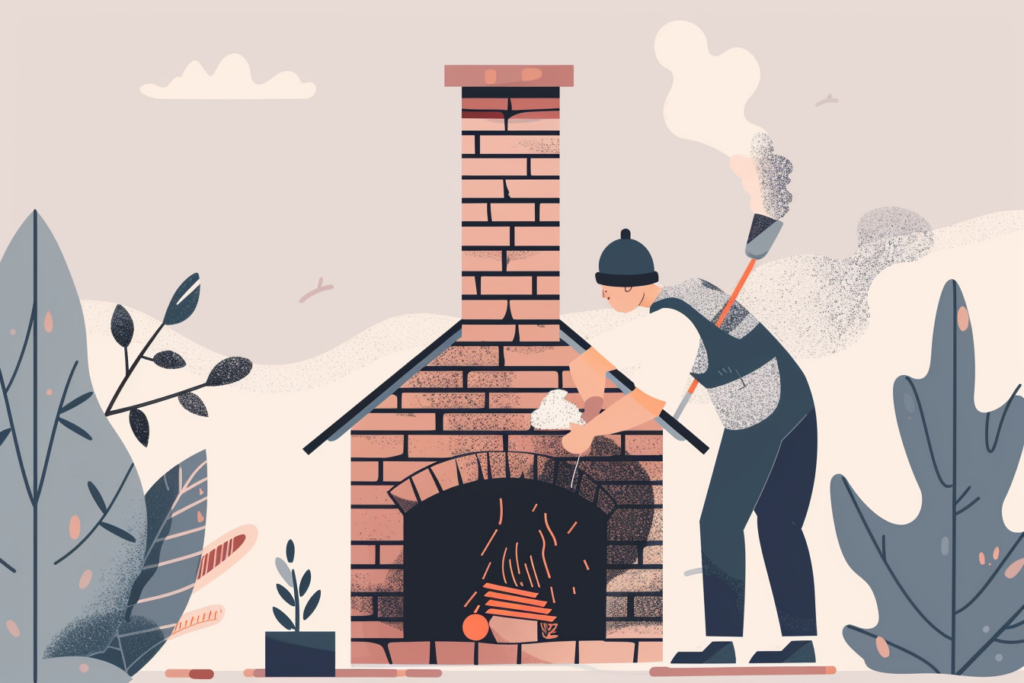
How do you know when it’s time to clean your chimney? Look out for these indicators:
- Buildup Visible: If you can see a noticeable buildup layer (thick, tarry, shiny substance) inside your chimney, it’s time for a cleaning.
- Foul Odors: An unpleasant smell emanating from your fireplace is often a sign of accumulated soot and creosote.
- Poor Burning Efficiency: Difficulty starting fires or noticing that they burn poorly can indicate airflow issues due to creosote buildup.
- Smoke Entering the Room: If smoke doesn’t properly vent through the chimney and enters your home, it may be blocked or partially blocked.
How Often Should You Clean Your Chimney?
The frequency of chimney cleaning depends on how often you use your fireplace, the type of wood you burn, and the age of your fireplace and chimney. Generally, chimneys should be inspected at least once a year and cleaned if necessary.
Consider bi-annual inspections if you use your fireplace heavily during the colder months.
DIY vs. Professional Chimney Cleaning
While some homeowners may feel comfortable performing basic chimney cleaning themselves, professional cleaning is recommended for a thorough job. Professionals have the proper tools and knowledge to safely and effectively remove all creosote buildup, even in hard-to-reach places. They can also inspect your chimney for any signs of wear or damage that might not be apparent to the untrained eye.
Choosing a Chimney Sweep
When selecting a professional chimney sweep, look for individuals or companies that are certified and insured. Reputable technicians should be certified by recognized bodies, like the Chimney Safety Institute of America (CSIA). Don’t hesitate to ask for references or check online reviews.
Preparing for a Chimney Cleaning
Before the chimney sweep arrives, take a few steps to prepare:
- Clear the Area: Remove any furniture, rugs, or valuable items from around the fireplace to protect them from soot or dust.
- Cease Fireplace Use: Stop using your fireplace at least 24 hours before the scheduled cleaning to ensure it’s cool.
- Access: Ensure the chimney sweep has clear access to the chimney, both inside and outside your home.
The Chimney Cleaning Process
A professional chimney cleaning involves several steps:
Inspection
The sweep will first inspect your chimney to determine the extent of buildup and check for any structural issues.
Covering Work Areas
To prevent soot and debris from spreading, the sweep will cover the area around the fireplace.
Sweeping
Using brushes and other tools, the sweep will clean the chimney, removing soot, creosote, and any blockages.
Vacuuming
A specialized vacuum removes all loosened debris from the chimney and fireplace.
Final Inspection
After cleaning, the sweeper will perform a final inspection, ensuring the chimney is clean and in good condition and they didn’t miss anything that needs to be addressed.
After the Cleaning
Once the chimney has been fully cleaned, your chimney sweep may offer some advice on how to maintain your chimney and fireplace until the next inspection. This could include recommendations on the type of wood to burn and tips for efficient fireplace operation.
Conclusion
Chimney cleaning is a crucial part of home maintenance that shouldn’t be overlooked. Regular cleaning and inspection can prevent dangerous chimney fires and ensure your fireplace is operational.
By understanding the importance of chimney cleaning, recognizing when it’s needed, and choosing a qualified professional, you can enjoy your fireplace with peace of mind, knowing your home is safe from chimney-related hazards.
You might also be interested in: Top 10 Home Maintenance Tasks Every Homeowner Should Know
